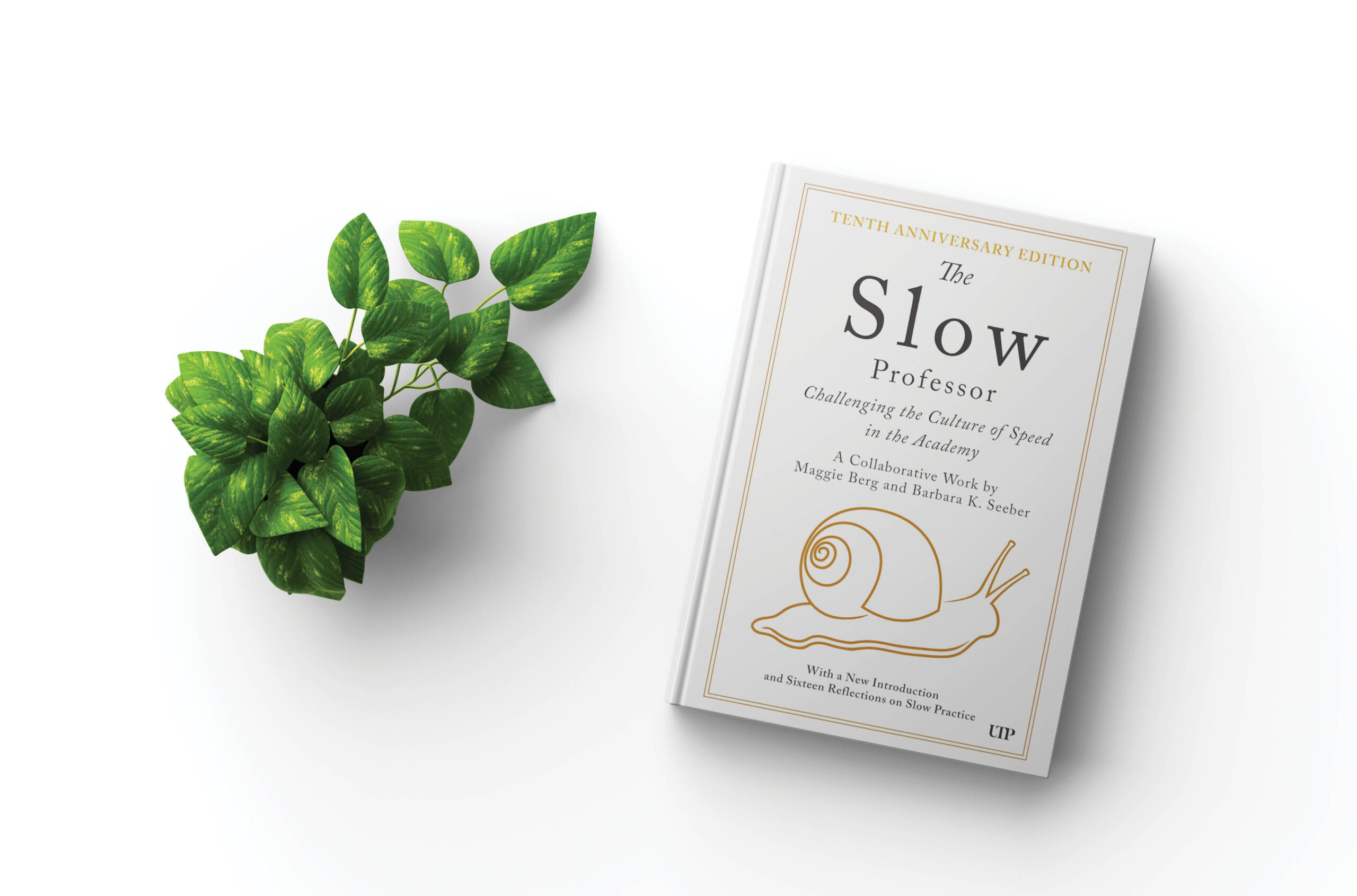A graduate student of colour’s navigation through the ivory tower
Systemic racism is in the very foundations of universities; its influence is insidious and persistent.

I’m often taken back to the moment when a prominent academic started a conversation about my MA research by pointing out the detriments that my brown skin would gift me in graduate school. I had asked for advice on navigating online research about extremist groups and hackers. The conversation continued and, through the fog of attempting to come up with a better response than “I know,” I heard them say that I should tell the RCMP and CSIS that I was “on their side.” I don’t recall much else apart from these snippets, as I spent most of it trying to process how a conversation that should have helped me thrive in my research had become an anchoring point for the realization of what being a person of colour (POC) in academia would entail.
I did my MA in a predominately white city, at a relatively white school, in a very white program. While being yelled at by white men from their cars, holding my breath during “but where are you actually from” conversations, and navigating my way through white feminism were common, the prejudices I would face in the university setting exhausted me the most. For two years I clenched my jaw through innumerable “you people” conversations, questions of biases in my research (for or against white supremacists or ISIS – I was never sure), the validity of my research funding, and being silenced by my own discomfort.
I often found myself being the only person of colour in the classroom, meetings and events, and treated as either the mascot of all POCs or the one who “always made it about race.” After I graduated, I felt as though I had escaped from the confines of the whiteness, leaving Kelowna, British Columbia, to come to Ottawa for my PhD. The visibility of minority groups in the city brought me a sense of belonging I had been missing; however, I was naïve. My ideas of racism in academia stemmed from the idea that because I had been in a demographically white city, the university was simply a reflection of that.
While I experience less blatant forms of racism in Ottawa, the quiet whispers of prejudice are weaved into my PhD. Again, I find myself having to defend myself for not wanting to be in a space I feel uncomfortable in, and having my experiences quickly shot down, causing my previous experiences to resurface – specifically, the conversation in which I was told how much bigger the academic mountain I would climb was going to be because of my skin colour.
While we as social scientists pride ourselves on highlighting power relations that are inherent within our lives that work to dehumanize marginalized peoples, we often ignore that we are within a system that has its roots in white supremacy. We tsk-tsk at the racialized past of our disciplines, pointing at how far we have come and applauding ourselves for our intersectional approaches. Yet, systemic racism is in the foundations of the ivory tower; its influence is insidious and persistent.
When prejudices are so ingrained into systems, it’s daunting to think of ways to combat them. As clichéd as it sounds, listen. Give people of colour space to express how we feel and what we experience. Do not diminish our experiences because you have not been in that situation. Don’t tell us it’s easy to “make it about race,” because it is not. To speak about racialized experiences is to expose a part of ourselves that is vulnerable, a part of us that needs to be given strength.
As a graduate student of colour, I hold onto guilt for allowing the irony of the ivory tower to make me question my self-worth as an academic, questioning if my role is to function as a checkmark for the lists and charts of diversity in universities. My biggest guilt is finding myself wondering (and, truthfully, at times fantasizing) what it would feel like to be white in academia, even for just five minutes. To feel as though I was extraordinary, while being ordinary at the same time, my opinions causing ripples of change and not ones that alienate. I have shied away from identifying myself as a race scholar because I was always scared of being “the POC who obviously studies race” and I realize now that it stems from the racism I have been subjected to in academia, and I am embarrassed for fighting against it.
Yes, it is hard because I am not white, but academia is exactly where my brown skin needs to be.
Jasmeet Bahia is a PhD student in the department of sociology and anthropology at Carleton University.
Featured Jobs
- Sociology - Tenure-Track Position (Crime and Community)Brandon University
- Medicine - Associate or Full Professor Professor (Kidney Health)Université de Montréal
- Engineering - Assistant or Associate Professor (Robotics & AI)University of Alberta
- Finance - Faculty PositionUniversity of Alberta
- Architecture - Assistant Professor (environmental humanities and design)McGill University















Post a comment
University Affairs moderates all comments according to the following guidelines. If approved, comments generally appear within one business day. We may republish particularly insightful remarks in our print edition or elsewhere.
10 Comments
Painful. It is painful to hear your experience, and painful to know how hard it might be to avoid such experiences. Senior white scholars sometimes try to show empathy in horrifyingly clumsy ways, probably because they know in theory that (predominantly white) academia can be a hostile place for POC but haven’t any real idea what it would be like, and can’t quite figure out how to show empathy or encouragement without saying things that will actually discourage POC or members of other marginalized communities. Such tone-deafness is yet another consequence of white privilege. Guilt and embarrassment can also produce dreadful effects, even with good intentions behind them. And then there’s the actual racism of the institutional culture, and that of individuals to deal with. Keep on keeping on. You will succeed. We all need you to.
My experience and observations are diametrically opposite. I’ve been in the Canadian academe for 40+ years. I came to Canada as a foreign graduate student. Upon completion of my degree I went back to my home country and applied for and obtained immigration visa, returned to Canada, and worked in the private sector. Then I did my PhD, went back to private sector, and then got a job as a professor. In all my 40+ years in the academe, I have never been treated in a racist fashion, I have never seen any evidence that the system is racist, and I have never observed any of my peers (as a student and later as a professor) or students treated in a racist fashion. I am not white, I am not stupid and I am not blind.
You have then been very fortunate and I am happy for you. But it is unnecessary to deny someone’s experiences because you haven’t experienced it yourself. Indeed, this in itself is part of the problem. This piece personally resonates with me. The author is very courageous to put her head above the parapet. I generally have not because I didn’t want to be one of ‘those people’ who ‘always make it about race.’ And for fear of comments like these.
There is nothing to fear from a comment, and making a comment does not deny anyone’s experiences. Furthermore, “comments like these” are just as legitimate as any other comment. Only by free exchange of comments and ideas it is possible to achieve progress, not by smothering them. “Part of the problem” is not making a comment, it is not allowing to make a comment.
“While we as social scientists pride ourselves on highlighting power relations that are inherent within our lives that work to dehumanize marginalized peoples, we often ignore that we are within a system that has its roots in white supremacy. We tsk-tsk at the racialized past of our disciplines, pointing at how far we have come and applauding ourselves for our intersectional approaches. Yet, systemic racism is in the foundations of the ivory tower; its influence is insidious and persistent.”
There it is! The racist gobbledegook that cloaks itself in anti-racism. This paragraph is the pro-forma pronouncement that acts at once both as hypothesis and proof. The rest of the article is just personalized adornment of this mantra. Anybody could write about their (likely far worse) struggles on the road to the professoriate and couch it in identitarian discrimination. I was white, male, jewish, poor, and unattractive grad student. Which of those traits do you suppose “white supremacy” has historically targeted most? Yet somehow this institution that is so imbued with “white supremacy” is well populated by us.
Enough.
Exactly.
Thank you, Jasmeet and Ismet, for sharing your (very different) experiences. I wonder how much of that difference comes from different events in your lives, and how much from different perceptions of those events.
In response to “Another academic”, I would like to offer some things that he might perhaps take the time to think about.
From a post here 8 years ago which still rings true: “Academics and their institutions often have trouble with the idea that they may practice racism. But, discrimination “is a matter of impact and not intent,” write Carol Tator and Frances Henry, both social scientists, in their book Racism in the Canadian University: Demanding Social Justice, Inclusion and Equity.” It is easy to say that there is no systematic discrimination or that “anyone” could find a reason to claim discrimination, but let’s look at impact – not intent.
It may be that everyone can feel they have struggled, but the question is not about individuals but about collectives. If there is no “identitarian discrimination” and academia is “well-populated by us” (whoever that “us” is), then why are certain groups so under-represented? Why are certain disciplines more diverse than others? Why are 96 per cent of leadership positions at Canada’s 15 research-intensive universities held by white people. No U15 institution had a woman of colour or Indigenous person on a presidential leadership team. Do you honestly believe that is because they just aren’t good enough and there is no discrimination?
We know that people hire people who look like them unless there is a concerted effort to change things. We know that minority groups receive less mentoring and encouragement from senior staff. Non-white academics are less likely to be shortlisted, appointed, or promoted in comparison to their white counterparts even when their performance is equal or better.
There are ways to try and make things more equitable. There is research to show that, for instance, if there is only one candidate who is different than the rest (e.g. female, ethnic minority, disabled) on an inteview panel, they have an almost zero chance of getting the job. However, if there are two or more, the changes go up to around the same as the majority candidates.We know that blind interviewing increases the number of successful minority candidates. A very recent large study from LSE showed that quotas actually end up weeding out mediocre majority candidates (usually white males) rather than resulting in hiring of less qualified minority ones, as is often claimed. Most Canadian universities don’t even report the numbers of minority faculty members – that would be a start on investigating the issue!
How about, rather than denying there is a problem, you ask yourself what you might do to help? Offer to mentor someone (but please be trained and committed!); make sure there is a standing item on departmental management committees to look at actions and progress on equality and diversity; have someone in the department whose job it is when there is an opening to proactively seek out and invite candidates to apply who don’t like like the “typical faculty” in your department.
And please don’t reject and belittle someone who is telling about their experiences as “gobbledegook” or tell them they should just shut up and be grateful there are there at all. That is exactly the kind of behaviour that serves to continue to marginalise people and shut down any discussion which the exact opposite of what we should be doing in universities. Of course each person’s story is unique, but we need to look beyond the individual to the bigger picture and the repeated stories that we hear. Just take a look at what is happening south of the border to see how a culture can build when those at the top set the tone and then deny any responsibility.
Those who can do, those who can’t end up in Academia.
Also in Academia, ‘publish or perish’.
Unless Jasmeet keeps publishing they will no longer be relevant. To succeed they publish. They have an agenda, it’s a sloppy one not subject to empirical testing, but will act as their soap box. Rabble rousing may not pay well but there is always plenty of work available.
If they carry on then over their career the expectation will be that Jasmeet will progress, benefit themselves financially, produce plenty of soundbites and achieve nothing, apart from making sure that their bank balance is well padded.
Not surprised at all ! Having worked with a prominent University, I have seen and experienced (I am a person of visible minority) discrimination based on race, religion, colour and gender. It exists at all levels i.e the faculty, administration, students, staff, and faculty. very little is done to eliminate and/or improve this situation. That is the reality of life on campus……!